Chairman says pandemic and climate emergency - and his work at Argent - convinced him of need to prioritise good design
Homes England is to place design quality and sustainablity at the heart of what it does, its chairman has pledged.
The principles will underpin both the housing it is responsibe for and the wider communities, said Peter Freeman, who founded Kings Cross developer Argent and joined the quango last year.

In a bid to demonstrate its seriousness, he announced the body has brought in the Design Council and the Building Research Establishment (BRE) to help it draw up strict new rules for the developments it funds or procures.
The trio will draw up a “strategic framework for the agency”, said Freeman, which Building Design understands is likely to set tough new environmental and design standards on Homes England developments.
Freeman said: ”We are recognising that the way we develop neighbourhoods, towns and cities is key to our health and well-being.
“As we look to the future, building the homes the country needs to unlock opportunity and growth will be crucial, but the pursuit of those ambitions can’t be just a numbers game.”
In an echo of the government’s argument that more “beautiful” developments will stop NIMBYism, he added: ”We are more likely to win the argument for new, extended and rejuvenated settlements across the country precisely by promoting well-designed, connected, vibrant places where people can prosper through the different stages of their lives.”
Freeman said his work at Kings Cross and Brindleyplace for Argent underpinned his belief that well-designed places were a non-negotiable. More controversially for architects, he also praised Nansledan, the Adam Architecture-masterplanned extension to Newquay on Duchy of Cornwall land which was lauded by the Building Beautiful Commission.
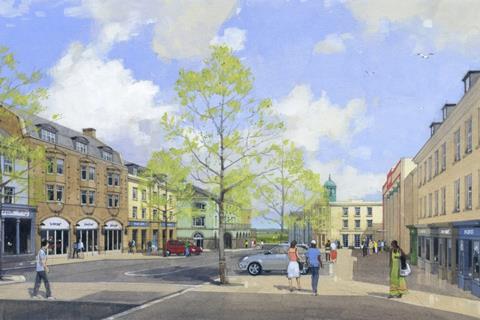
Nevertheless his words will be welcomed by architects who have previously criticised the quango for prioritising quantity over quality. As the Homes and Communities Agency, it came in for stick for its £1bn Kickstarter programme a decade ago, with questions asked in Parliament prompted by Building Design’s Come Clean on Kickstart campaign. There were also queries about the role of Cabe - now part of the Design Council - in scoring the design quality of Kickstarter schemes. Many of its low scores were later revised upwards.
The bodies appear to have put this history behind them. Freeman said: “This framework and the partnership between the three industry-leading organisations will set an ambitious, long-term roadmap for Homes England to leverage its leadership and convening role in the housebuilding sector.”
Homes England oversees the administration of the £12bn affordable housing programme, as well as managing the sale and delivery of a raft of public land for housing, and it is thought the framework standards could apply to both.
The comments, in Freeman’s first speech since Hyde Group boss Peter Denton was appointed Homes England chief executive earlier this month, come after executive director Stephen Kinsella said there was a “live” discussion about the body setting tough new standards in the areas of net zero, biodiversity, design, and modern methods of construction.
At the time Kinsella said the agency was asking whether to “set higher standards” and “additional obligations on developers” in order “to show leadership, and more importantly to allow the industry to understand and learn before they need to deliver before new requirements on all their sites.”
He said at the time that these standards, if brought in, would apply to its £450m land-trading operation and also to its grant funding programmes.
A spokesperson for Homes England confirmed that Freeman’s speech was referring to the same thing.
Freeman said the new framework would build on its existing use of the Building for a Healthy Life tool, produced by Design for Homes and the NHS. He said: “We are absolutely committed to using our influence and expertise to drive up the quality and pace of sustainable development.”
>> Also read Julia Park: Government policy undermines everything ministers say about beautiful homes>> Also read Peter Studdert: The government’s promise of local beauty for local people is a fig leaf
Extract from Peter Freeman’s speech
As we start to recover from the pandemic and rebuild a more productive economy, we are learning that the “new normal” will be very different from the past.
We must make progress towards a zero-carbon society. We are realising that our children, and their children, will not thank us if we continue to build poorly designed homes and places.
We are recognising that the way we develop neighbourhoods, towns and cities is key to our health and well-being.
As we look to the future, building the homes the country needs to unlock opportunity and growth will be crucial, but the pursuit of those ambitions can’t be just a numbers game.
We are more likely to win the argument for new, extended and rejuvenated settlements across the country precisely by promoting well-designed, connected, vibrant places where people can prosper through the different stages of their lives.
For me personally, my outlook on shaping new communities is heavily influenced by my work as Co-founder of Argent in its master planned, mixed-use developments at King’s Cross and Brindleyplace in Birmingham.
Turning King’s Cross from a rail terminus surrounded by dereliction to an enormously attractive destination in its own right was a massive undertaking, but the principles that underpinned our approach have shaped the design of vibrant places for centuries.
We sought to work in partnership to create places for people to live, work, play, get educated and enjoy themselves in uplifting surroundings.
While King’s Cross is one project, the principles of creating places that are useful, well-designed spaces for the community are ones we must fully embrace as we seek to learn the lessons of Covid-19.
The pandemic has brought clarity around the importance of place. It made us realise how much people treasure their space; the familiarity of their community, green spaces, and amenities to enjoy on their doorstep, not a train or car ride away.
It would be wrong to say that we are starting from scratch on this front. There are some fabulous examples of schemes that embody these principles being delivered today.
The urban extension of Newquay, known as Nansledan on land owned by the Duchy of Cornwall, is a fine example.
New homes are being built, not in isolation, but alongside schools, high streets, and plenty of green space including allotments and playing fields.
Similarly, at Houlton in Rugby, the Wellcome Trust-owned master developer Urban & Civic are leading the construction of a new 6,000-home community.
Their business model is based on a long-term commitment to placemaking, making the delivery of social infrastructure and schools an up-front commitment rather than a neglected afterthought.
While not all projects will be suited to this model, principles of mixed-use, green space, uplifting surroundings and social value can be applied to the many sites we need to build to meet demand locally and nationally. A proper range of sites, addressing local needs and opportunities will include brownfield and greenfield, in-fill, urban extension and new towns.
No one size fits all.
Local authorities, landowners, developers and central Government all need to work more co-operatively to allocate the right solutions and see they are delivered – and delivered well.
As co-chair of the Urban Centre Recovery Taskforce I heard many positive examples of these principles being put into practice.
Design
Emerging from the pandemic, Homes England is working to ensure we are embedding these principles in everything we do.
We have partnered with the Building Research Establishment (BRE) and the Design Council to develop a strategic framework for the agency.
This framework and the partnership between the three industry-leading organisations will set an ambitious, long-term roadmap for Homes England to leverage its leadership and convening role in the housebuilding sector.
This work will build on the existing good practice already underway at Homes England, such as the agency’s work with Design for Homes, NHS England, and NHS Improvement to produce the design quality assessment tool Building for a Healthy Life.
We are absolutely committed to using our influence and expertise to drive up the quality and pace of sustainable development.


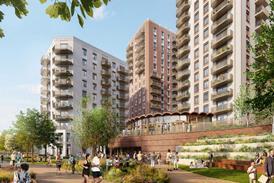
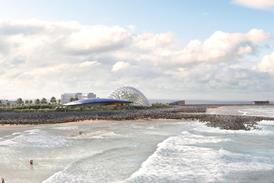
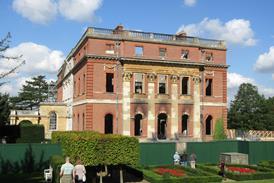
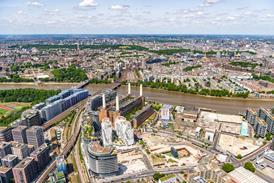










2 Readers' comments